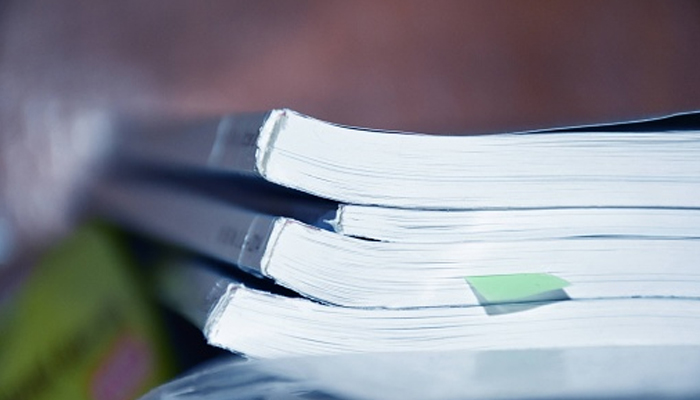Over 400 Pakistani researchers published papers in clone journal
400 Pakistani researchers from various universities have published 150 fake papers in a clone journal since 2019
January 16, 2022

- 400 Pakistani researchers have published 150 fake papers in a clone journal since 2019.
- Clone journal's name is: ‘International Journal of Disaster Recovery and Business Continuity'.
- Term clone journal refers to substandard journal that copies the name of a reputable journal.
Since 2019, around 150 fake research papers have been published by more than 400 Pakistani scholars and academics belonging to various public and private sector universities in a clone journal named ‘International Journal of Disaster Recovery and Business Continuity' (IJDRBC).
The term clone journal refers to a substandard journal that copies the name of a reputable journal.
In the case of the IJDRBC, some authors apparently knowingly submitted their papers to the clone journal, which is evident from the fact that a single issue of the journal has carried from four to five papers produced by the same authors, which is something that a reputable journal would never allow.
Some other academics might have been deceived by the clone journal. However, if they were deceived, the onus to some extent also lies on them as they should have verified the authenticity of the journal on the Higher Education Commission of Pakistan’s (HEC) Journal Recognition System (HJRS).
On the HJRS website, researchers can easily verify the authenticity of any journal by entering its name or the International Standard Serial Number (ISSN). If there is an entry of the journal in the HJRS, the website shows details of the journal such as its name, category, name of the publisher, and whether it has been indexed by two reputable global agencies, Scopus and Web of Science.
In the case of the clone IJDRBC, the name of the publisher mentioned on the HJRS website is different than the publisher mentioned on the website of the clone journal.
Deception trick
As per the website of the original IJDRBC journal, the IJDRBC was initially published by the Science & Engineering Research Support Society (SERSC) based in Australia but in January 2019, another Australian-based publisher, namely NADIA, acquired the journal from the SERSC.
According to the NADIA website, the editor-in-chief of the IJDRBC is Snjezana Knezic from the University of Split, Croatia. The journal is currently published biannually both online and in print format. Its International Standard Serial Number (ISSN) for the print is 2005-4289 and for online is 2207-6425.
However, interestingly, the old publisher of the journal, SERSC, has still not removed the name of the IJDRBC from its website. The SERSC website still claims that the IJDRBC is its journal, which it publishes on a monthly basis. If despite the acquisition of the IJDRBC by NADIA, the SERSC is also claiming to be publishing it, it means the SERSC’s version of IJDBRC is a clone journal.
The SERSC website maintains that the ISSN number of the print version of the IJDRBC is 2005-4289. It is the same number mentioned on the NADIA website. Since the two journals are published by different publishers, they cannot have the same ISSN, which shows that the SERSC is deceiving the academics by using the ISSN of a journal that it once owned.
The online ISSN of the SERSC’s IJDBRC is 2207-8363, which is different from NADIA’s 2207-6425. It appears that the SERSC is only publishing the clone journal online.
HEC’s fault
In order to find out whether the HEC recognises the two journals, The News tried to verify them on the HJRS website through their ISSN numbers. The HJRS did not verify the online ISSN of the SERSC. As for the print ISSN, the HJRS mentions that the publisher of the IJDRBC is NADIA, not the SERSC.
However, all seems not well with the HJRS database. The News found that the HJRS recognises the IJDRBC owned by NADIA in the Y category. Interestingly, the HJRS also states that the IJDRBC is indexed by the Web of Science, which is a prestigious indexing agency. Along with Scopus, Web of Science is one of the only two indexing agencies recognised by the HEC.
However, The News noticed that NADIA has not claimed on its website that the Web of Science had indexed its journal. Upon checking the Web of Science website, it was found that it had not indexed the IJDRBC, which means that the information on the HJRS website was wrong. Those who made the HJRS database erred at least in making the entry of the IJDRBC.
Multiple papers
In the online version of the clone IJDBRC available on the SERSC website, it was found that a number of Pakistani authors have published multiple papers in a single issue of the journal. For example, Liaquat Ali Chandio of the Shah Abdul Latif University Khairpur, both as a single author and with other authors, has published a total of four papers in the December 2021 issue of the journal.
In the same issue, Prof Dr Qamar Afaq Qureshi of the Gomal University has published three papers. Dr Taseer Salahuddin, a lecturer at the National University of Modern Languages (NUML) Multan Campus, with others has produced two papers.
The Pakistan Procurement Authority legal director-general has also published a paper in the clone journal. These are just a few people who have knowingly or unknowingly submitted their papers in the clone IJDRBC as around 400 other Pakistani academics and researchers have produced more than 150 papers in the clone journal. They belong to the Bahria University, Riphah University, University of Peshawar, University of Sargodha, Punjab University, Khyber Teaching Hospital Peshawar, Islamic International University Islamabad, University of Swat, University of Sindh, and others. The readers can find their papers on the website.
HEC's response
In October 2021, The News published a story titled ‘Fraudulent research thriving in Pakistan due to HEC’s apathy’, in which it discussed how the HEC had not taken action against fraudulent research in the country.
In response to the story, the commission sent a written response, in which it said, “HEC only approves those international journals which are indexed with Scopus and Web of Science that are well-reputed international indexing agencies”. However, the HJRS has approved the original IJDRBC that has not been indexed by Scopus and Web of Science.
In the October 2021 story, The News also raised the issue of clone journals, to which the HEC replied that it was investigating how two publishers could claim the ownership of a journal with the same ISSN.
When The News informed the HEC media relations department about the clone IJDRBC, the spokesperson was unable to comment and said that he would forward the question to the relevant department and after getting a written response from them, he would inform The News.
Originally published in The News











